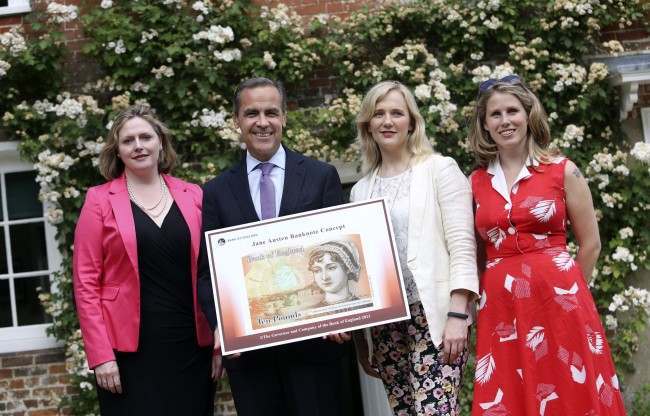Isabella Sorley From Newcastle And John Nimmo From South Shields Charged wIth Abusing Caroline Criado-Perez

ISABELLA Sorley, 23, from Newcastle, and John Nimmo, 25, from South Shields, have been charged with improper use of a communications network under section 127 of the Communications Act. It is alleged that they threatened Caroline Criado-Perez with tweets
Caroline Criado-Perez launched a successful campaign to have a portrait of a doll-like Jane Austen on the £10 note.

Labour’s shadow home secretary and shadow minister for women Yvette Cooper was so upset by the abuse thrown at Criado-Perez she wrote to the head of Twitter in the UK. She was “deeply concerned by the handling of serious and violent threats of abuse and rape”:
” … Despite the scale and seriousness of these threats, the official response from Twitter continues to be extremely weak – simply directing Caroline away from Twitter towards the police, and, belatedly, directing users to abuse reporting forms on Twitter.
” … I urge you to go further and ensure that Twitter carries out a full review of all its policies on abusive behaviour, threats and crimes, including more help for Twitter users who experience abuse, a clear complaints process and clear action from Twitter to tackle this kind of persecution.”
But Cooper never did complain when Emma West was targeted.
Twitter moralists and the police only protect women they like.
Maybe the police are only in it to make themselves look good? Ms Criado-Perez said in a tweet: “Well that’s pretty awesome. CPS informing press about charges ahead of me. About the level of victim-support I’ve grown to expect.”

Photo: Mary Macleod, a Conservative member of parliament, Mark Carney, Governor of the Bank of England, Stella Creasy, a Labour and Co-operative member of parliament, and Caroline Criado-Perez, co-founder of the Women’s Room, pose for a photograph following the presentation of the concept design for the new Bank of England ten pound banknote, featuring author Jane Austen at the Jane Austen House Museum in Chawton, near Alton.
As for the campaign. It was one well run and well meant. But we agree with Liz Gerard:
Odd that, isn’t it? Well no. Asked to name great British women, most people run out of steam after Florence Nightingale and Elizabeth Fry, as the Bank seems to have done. Yet I’d bet that anyone could rattle off ten times as many men in sixty seconds flat – and be aware of why they were in the frame. You can see how easy it was for the Bank to fall into the trap.
My problem with the debate is the letter ‘a’.
Keep a woman on English banknotes
Which woman should be on the fiver?Imagine if that has been ‘which man should be on the fiver?’ Or ‘which black/gay/blind person…’
This isn’t equality, it’s tokenism. It’s as though the feminists are saying ‘We don’t care who it is, we just want a woman’, while those (presumably men) commissioning the newspaper articles are saying ‘If you were allowed one, who should it be?’
There have been many, many great men through British history – and rather fewer great women. There is an interesting debate to be held on what should be the criteria for recognition on a banknote, but gender ought not to be one of them. Should candidates be instantly recognisable to all Britons? Towering giants of the arts, science, social reform? People of international renown? Or people whose retrospective importance outweighs their fame?
If the women’s cause is to be advanced, then the latter needs to be emphasised. That way we would highlight the achievements of people whose efforts have been under-reported and under-estimated for decades. People like Rosalind Franklin, above, whose DNA X-ray work provided the vital key to the mapping of the human genome. She was sneered at and patronised in the lab by Crick and Watson, who danced off to collect their Nobel prizes and then took a quarter of a century to make grudging acknowledgement of her contribution.
Had Ms Criado-Perez approached the Bank (and the media) with an extensive list and said ‘You know there are so many unsung British women who achieved great things, how about raising their profile by putting them [not “one of them”] on the currency?’ she might have found that the door opened easily. The Bank would probably have been grateful for the suggestions.
Instead we have a campaign that has the air of women stamping their feet shouting ‘It’s not fair.’
And that means we also have men patting us on the head saying ‘Calm down, dear, we’ll give you that Pride and Prejudice woman next time…
‘Now get back to the hoovering.’
Sorley and Nimmo will appear at Westminster magistrates court on 7 January.
Posted: 16th, December 2013 | In: Reviews Comment | TrackBack | Permalink


